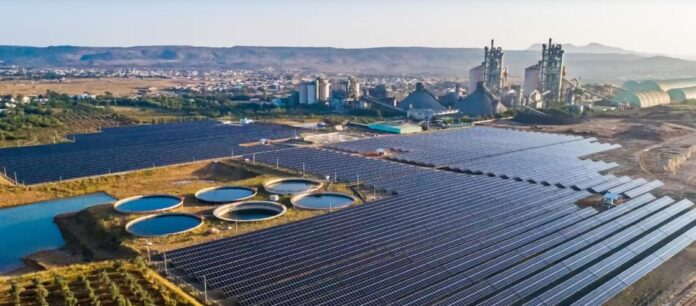“In the past five years, the average concentration of PM2.5 in China’s prefecture-level and above cities has dropped by 27.5%, and the number of days with heavy pollution has dropped by more than 50%,” and “the installed capacity of renewable energy has increased from 650 million kilowatts to more than 1.2 billion kilowatts,” cited the government work report released by the ongoing Two Sessions. Beyond doubt, China’s energy conservation and carbon reduction have reached a new level.
In 2022, the total export value of Chinese PV products (silicon wafers, cells, modules) was approximately USD 51.25 billion, a year-on-year increase of 80.3%. Such dramatic growth means, being a responsible major power, China is promoting green causes around the world as approaching its own carbon neutrality goal.
As Pakistan is one of the most vulnerable countries to the adverse impact of increasingly severe climate change, China’s leading solar solutions provider LONGi has long been committed to developing the PV field with local partners to optimizing energy structure in Pakistan.
“We signed an MoU with the Government of Pakistan in July 2019 to invest in the construction of a 50 MW solar power plant in the Bahawalpur, Punjab, as our first step,” Ali Majid, General Manager, Pakistan, LONGi Solar, said in an exclusive interview.
“As for the current overall production capacity of LONGi’s green energy projects invested in Pakistan, total shipments to Pakistan market would reach about 1GW this year. The experience of developing the market in the past few years tells me that in order to boost PV and new energy field, investment and awareness, none can be dispensed with,” Majid added.
Pakistan should encourage more investments in renewable energy infrastructure to the greatest extent, including government and private investment in large-scale solar farms, as well as smaller rooftop solar installations.
“As for awareness, strengthen education around the benefits of green energy, such as public education campaigns and outreach to businesses, communities, and schools,” Majid noted. “Beyond that, we can increase investment in research and development of new PV technologies, such as improving the efficiency and performance of solar panels, as well as developing new materials and manufacturing processes.”
“Nowadays, contradictions between global energy supply and demand caused by geopolitical conflicts to a great extent, which is called “the first real global energy crisis” by the International Energy Agency (IEA), is increasing prominent. In order to alleviate the contradiction, the global photovoltaic market is booming. As a major demand market, China has a year-on-year growth rate of about 59%. According to the demand forecast of major consulting agencies, it is estimated that the new installed capacity of photovoltaics in the world is expected to exceed 350GW in 2023,” emphasized Alex Li, General Manager of Central Asia branch LONGi.
It is learned that high cost has brought great challenges to global joint response to the energy crisis. “For example, in the vast desertification areas in the Middle East, the main issue is the lack of fresh water. The increase in costs brought about by desalination of seawater is the main obstacle. If the fresh water is sufficient, large-scale greening will not be difficult,” Alex Li believes that this is why PV has epoch-making significance.
“Photovoltaics can indeed change the ecology of our earth because solar energy does not depend on any resources, and the sun shines on everyone fairly,” Alex Li looked forward to the future. “How to turn fair sunlight into energy that benefits everyone is the goal we have always strive for.”
This year marks the 10th anniversary of the Belt and Road Initiative, as well as the 10th anniversary of the launch of the China-Pakistan Economic Corridor. Majid stated that the CPEC Phase II is expected to focus on the development of new technologies, such as energy storage and smart grid systems, to improve the efficiency and reliability of the energy sector. “New energy enterprises, including LONGi, are likely to play a key role in promoting the adoption of renewable energy in Pakistan, even the whole South Asia region.”


